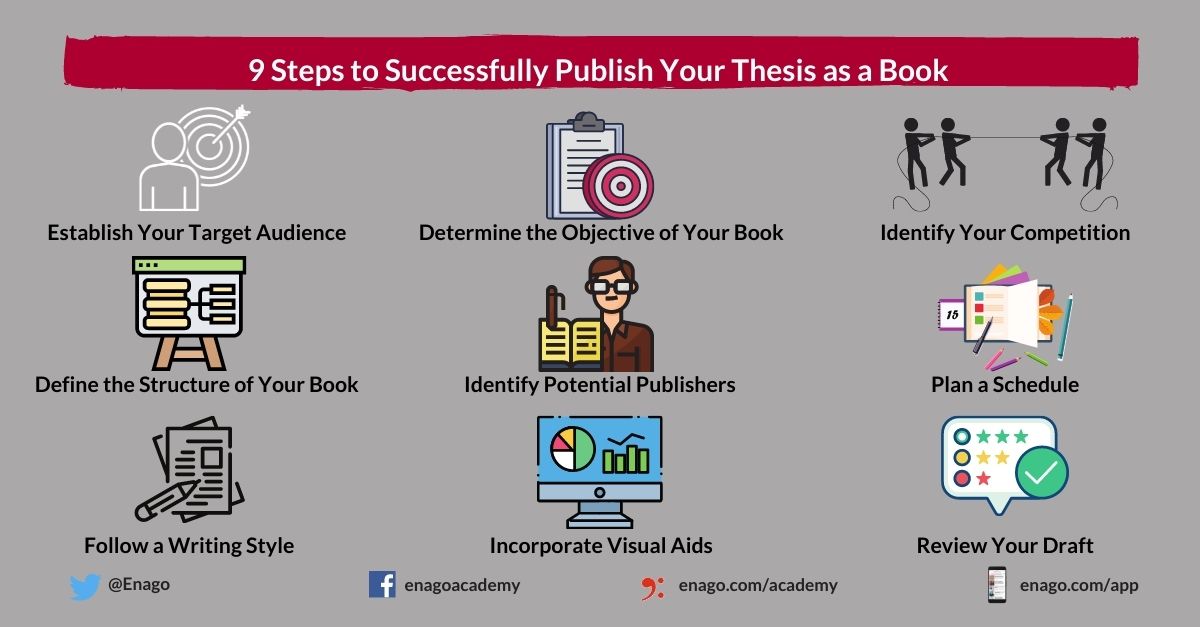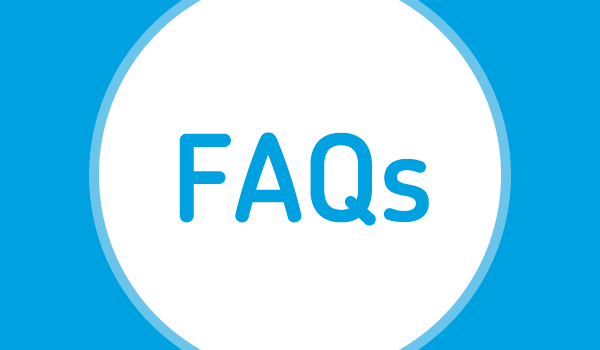

How to... Convert your thesis into a book
This how to guide takes you through everything you need to know to convert your thesis into a book.
You can read all the information you need below, or watch this video from Books Commissioning Editor, Katy Mathers.
On this page
Consider the level of conversion.
- What are book publishers looking for
Consider the audience
- Tips for converting your thesis
What happens next?
Your first consideration when thinking about book publishing options for your thesis should be the level of conversion. You could consider the following options.
A full conversion – from thesis to book
This is a good option should your thesis be on a topic that would have wide appeal to an academic audience. A key consideration here is that the structure of a thesis is massively different to a book. Rather than starting with a hypothesis, a book should showcase a considered argument and its narrative should communicate that argument to peers in the field – demonstrating how the research has evolved into this viewpoint, and what impact it can have.
Partial conversion – using parts of your thesis in a book
Using parts of your thesis in a book usually means that you are conducting further research that might be ongoing, and might involve colleagues that might be a co-author on the project.
Partial conversion – a chapter in an edited collection
Perhaps your thesis doesn’t quite have the broad appeal for a full book conversion. In this case you might consider a chapter in an edited collection under a broader theme – this means you’re broadening the scope of your PhD research to a wider audience by collaborating with a team of contributors on an edited book. Look out for calls for chapters on relevant themes.
What are publishers looking for?
Broad (global) scholarly appeal.
- Remember your thesis is written for a handful of examiners and experts in your field and is partly there to demonstrate the expertise you have gained from your research. A book should have a much wider audience than that, and should be engaging and interesting enough to appeal to a broad section of researchers across your field (and potentially other disciplines as appropriate), and should particularly be accessible enough to engage any researcher interested in your topic of study.
- Single-country case studies won’t always translate well into a book given their focused scope, however, they would work as part of an edited collection with a broader global scope.
- A good book manuscript should focus on a coherent argument/narrative, rather than a step-by-step checklist of things you need to demonstrate in a thesis.
- You don’t need to include big sections or whole chapters on literature review or methodology, these can be weaved into the book as and when appropriate.
Development potential
- An original thesis should be regarded as the basis for an entirely new work, written with a new audience in mind.

Talking about your research and the process of working it into a book is one of the best ways to ensuring success.
Try reaching out to your immediate colleagues, and co-authors on published papers, your PhD supervisor, peers you might meet at conferences, with a publishing contact, or even online. Try asking for advice on twitter, or any professional network sites.
It is advisable to start a conversation with supervisors and other colleagues shortly after the completion of a PhD.
Once you’ve started to get a good idea of what you want to do, it’s also a great time to reach out to a commissioning editor at a publisher. They can advise on further considerations for turning your thesis into a book with a broad scholarly appeal, as well as how to fill in a book proposal form.
Following this, the next natural step is to submit a book proposal which will be considered by the publisher, often involving a peer review process.
The single most important thing to remember when converting your thesis is the audience. Your thesis is written for a select amount of examiners with specific expertise in your field and showcases your nuanced and rich expertise, which you have gleaned from your research in your particular area.
In contrast, a book should have a much wider audience and should be engaging and interesting enough to appeal to a broad section of researchers across your field, and potentially even other disciplines as appropriate.
As a book, your research should be accessible enough to engage any researcher interested in your topic of study.
- Realise which parts of your thesis are useful only to examiners. Any sections such as literature review, or extended methodology discussion should be cut or heavily amended/digested. These sections can weave in and out of your overall narrative rather than be structured separately.
- Writing style is less important for examiners, but essential for book readers. PhD examiners will read your thesis regardless of the writing style, but the writing style for book readers is essential for ensuring your research is accessible and engaging. You must be prepared to extensively re-write your thesis to retain and engage readers. This should be seen as essential rather than optional.
- Keep the big picture in mind. It’s important to take a step back while putting together a proposal, or during the manuscript writing process. Set reminders at intervals to focus on the overall narrative of the book. Is there a logical development of an argument? Does it make sense to a reader’s point of view? If not , be prepared to rethink the structure – it can be freeing to step away from a traditional thesis structure.
- Write concisely. It’s important to bear in mind the importance of the reader’s time. At all stages of the writing process you should focus on streamlining where possible and keep in mind the agreed length of the book. Books are often much shorter than theses, which by their nature contain much repetition. If you’re finding it hard to meet the agreed word limit, your writing style is likely not quite right yet for a book audience.
- Emphasise context. If your research is specialist and nuanced, with a narrow scope, try boosting its contextual implications by adding an international or inter-disciplinary context. It’s particularly useful to do this within the introductory and concluding chapters. Rounding off your book with opening and closing contextual chapters can really emphasise the place of the research within the field and showcase how it’s adding to the literature or breaking fresh ground.
- Get a third party proof-reader. Consider getting someone within your field, perhaps without the specialist knowledge relating to your PhD knowledge, and see what they think of your writing style. If they can follow your argument and find value in the work you’re presenting for the wider field, then the book has good potential. If they’re struggling, you might need to re-think the project.
Top tips for converting your thesis
- The main title of the book should position it clearly without reference to other bibliographic information, and should be as short as possible.
- Chapter titles are something people often forget, and chapter titles can sometimes be a real giveaway in a proposal that a book is based on a thesis and maybe hasn’t been revised appropriately. It’s often a comment reviewers make, and a clear sign to them that the proposal is a thesis conversion. Chapter titles can be way more dynamic in a book than in a thesis, and there’s no need to have chapters called 'methodology' or 'results'. Freeing yourself from these structured ways of thinking can be liberating, and is a good way of diverting yourself from writing in a thesis style.
- Remember that readers of the book are most interested in what your findings/argument are. Think about leading your book with the 'end' of your thesis, i.e. the results/answer to the question you were researching, rather than starting by explaining how you got there.
- You don’t need to include big sections or whole chapters on literature review or methodology, these can be weaved in to the book as and when appropriate (particularly if your research employed an innovative methodology, for example).
- A book manuscript should typically be shorter than your thesis. If you’re struggling to bring the word count down, you might need to get help with your writing style, or evaluate if you’ve cut enough “thesis-heavy” content from your work.
- Use introductory and concluding chapters to contextualise your research. This is super helpful for placing your work within the field.

To summarise
Be prepared to re-write: Having sketched out a new structure and focus, you now have to start writing all over again to create a completely new work. You should accept this as a must for success, and enjoy the creative process that comes with it.
Remove academic structuring: Ordinary readers want you to get straight to the point, Anything that sounds like "In this chapter I will argue . . ." or "In this chapter I have shown . . ." should be deleted immediately.
Audience is the most important consideration. Re-organise your writing around your new audience – remember that concise, narrative-led writing is essential.
Re-focus on the storytelling. Any background material (such as surveys of previous literature, historical background, discussions of earlier and current theories, arguments, methodology, etc.) if retained at all, should be moved from the beginning to the end of the book, or incorporated in a condensed form into the relevant sections of the main text. From start to finish, you should begin with an answer rather than a question, and your argument should be maintained throughout.
Once you’ve formed an idea for your book project, it’s a good time to talk to a commissioning editor at a publisher about submitting a proposal.
Get ready to publish a book
See a list of our book commissioning editors, along with their subject areas and contact information.
Submit your book proposal
Find out how submit a book or series proposal and what the next steps in the publishing process are.
The book peer review process
A helpful guide to our book peer review process.
- Insights blog
Turning your PhD into a successful book
Requests regularly arrive in the Author Services inbox asking for advice about turning PhD research into journal articles or books. In this guide, first posted on the LSE Impact Blog , Terry Clague, a Senior Publisher at Routledge gives his advice and insight into what publishers are looking for when they receive new book proposals.
Research conducted as part of a PhD is valuable. It is valuable for the researcher, who has spent countless hours carrying out the work and it is valuable to those deciding whether the research should result in the award of a PhD qualification. But can the research be valuable to broader audiences? The simple answer is yes – at the heart of many successful academic books lies research conducted as part of a PhD.
What options to consider when turning your PhD into a book
In the majority of cases, PhD research is published in the form of journal articles. In some cases, the research is published in a book. Between either end of that publishing spectrum there is an array of options to consider when it comes to disseminating PhD research:
Converting the entire PhD thesis into a book requires that your thesis covers a topic of interest to a large enough audience of scholars. Whereas a thesis starts with a question, a book begins with an answer and communicates its importance in the wider research landscape, tracing its evolution and impact.
Using parts of a PhD thesis in a book requires that ongoing and/or collaborative research is being conducted. A book (perhaps co-authored) should be greater than the sum of its constituent parts.
Using an aspect of a PhD thesis in an edited book on a broader topic ensures that the research fits with related research on a similar theme. A good edited book addresses the need to broaden the scope of PhD-based research via collaborating with a team of contributors.
Splitting a PhD thesis into several articles for journals hedges a PhD’s bets by staking smaller amounts of the work in different locations. What is gained by this hedging may be lost in the overall narrative of the PhD research as it is unbundled.
What publishers look for when deciding whether to take you on
The role of the book publisher is to connect authors with readers. When it comes to disseminating research originating from a PhD, this relationship is essential. It is therefore useful to consider the perspective of the publisher when considering what publication route to take. In assessing a proposal for a research-level book, a good publisher will initially ask themselves three questions:
Is the scope of the research broad enough to be of interest to our readers (scholars globally)? Example
Is the quality sufficiently high?
Can the work be developed via feedback from experts as part of the book review process to address any weaknesses?
Post information
Related posts, insights topics.

Beyond those core questions, potential authors should also consider significant and ongoing changes to the market for academic books, notably in reader behavior. Evolution in digital technology combined with a significant increase in the amounts of available research has led to changes in the way that books are produced, published and propagated. In this environment, the key word is “discoverability”. Connecting authors to readers requires that publishers facilitate discoverability of research via various routes to ensure that potential readers are able to find books with ease. Authors can aid this process by following a few basic rules of thumb:
The main title of the book should position it clearly without reference to other bibliographic information, and should be as short as feasible
Chapter titles should likewise, where possible, position themselves clearly
Chapter synopses or abstracts can be used to enhance the metadata around books
Submitting a book proposal
It is useful to start a conversation with an acquisitions/commissioning editor at an early stage toward the end or shortly after the completion of a PhD. Discussions with supervisors and other colleagues are also very useful at this stage. The next natural step is to submit a book proposal which will be considered by the publisher, often involving a peer review process. Research-level books are often published as part of an established series – an awareness of existing books in such series can be useful when it comes to framing and developing a book proposal.

Preparing your final manuscript for book publication
Following a review process, the publisher’s editorial board would give final approval to proceed, following which a book contract would be issued. Armed with publisher and review feedback, the author can then proceed to produce a full manuscript based on their PhD research. Each book is different, but there are numerous key aspects to consider when preparing a final manuscript for book publication. Above all, never lose sight of the audience:
A thesis is written for examiners, a book for scholars in general . Anything that is useful only for examiners (e.g. literature review, methodology discussion) should be cut or heavily amended/digested.
Examiners will work through text regardless of the writing style, book readers will not . Therefore, it is likely that extensive re-writing will be required to retain and engage readers.
Take a step back . Think about the overall narrative of the book and be prepared to rethink the structure – this can be liberating!
Value the reader’s time . Streamline where possible – theses by their nature contain much repetition. Keep in mind the agreed length of the book.
Contextualize . If research is of a narrow scope, add international or inter-disciplinary context, particularly within the introductory and concluding chapters.
Sharing your research

Finally, talking about your research and the process of working it into a book can be an essential ingredient to its success. This can be done with your immediate colleagues, at conferences and with a publisher. It can also be done online – with social media a useful tool to tap into wider networks as well as to test ideas out.
Further Reading
European University Institute (Undated) – From PhD to Book Germano, W. (2005) – From Dissertation to Book Thomson, P. (2011) – Can I Get a Book From My Thesis Thomson, P. (2013) – Turning Your PhD Into a Book Veletsianos, G. (2016) – Social Media in Academia , Routledge
Where to next?
If you’ve found these tips helpful make sure you look at:
Our Insights newsletter – the latest news, tips, and resources delivered straight to your inbox.
Share this post on social

Oxford University Press's Academic Insights for the Thinking World

How to turn your PhD thesis into a book

Oxford Academic
Learn more about the world of academic publishing—from open access to peer review, accessibility to getting published—with our Publishing 101 series on the OUPblog.
- By Sam Bailey
- June 6 th 2024
As an OUP editor who has also completed a PhD, one of the most common questions I am asked is how to turn a thesis into a book. My only-slightly-flippant answer is don’t .
Rather than a revision of their PhD, I would encourage first-book authors to treat their fledgling monograph as a brand-new project.
In a 2015 interview for Vogue , Ursula K. Le Guin spoke about revising Steering the Craft , her classic handbook for aspiring fiction writers, for the twenty-first century. ‘It’s substantially the same book,’ she says, ‘but almost every sentence is rewritten.’ This oxymoron draws attention to the slippery distinction between the work of revising and the work of rewriting. Far from being a distinct undertaking with a separate purpose, revising often shades off into rewriting by an almost imperceptible degree.
For former doctoral students, this is no bad thing. A PhD thesis and an academic monograph have entirely different purposes—trying to turn the former into the latter via a process of revision can feel like trying to fit a square peg into a round hole.
At the most basic level, a thesis is a document written to pass an exam and to prove the writer’s skill as a researcher. In keeping with this purpose, it is written for a readership of two or—if we’re being generous—three people: your pair of examiners and your primary supervisor. More people will likely read parts of your thesis, although they are not the target readership. A monograph, on the other hand, is written to communicate important and useful research to the widest possible specialist readership. Each of the two documents’ purposes is entirely different, and everything about their construction must feed into that purpose, or they are not doing their job very well.
Before you begin
It’s worth pausing to think whether your thesis needs to become a monograph to advance your career. In certain disciplines, a couple of peer-reviewed research articles in reputable journals is just as, if not more, advantageous than a monograph with an equally reputable publisher.
There’s also the effort-to-reward ratio to consider; turning two thesis chapters into research articles may be less time consuming than turning your entire thesis into a monograph. Besides, having some disciplinary journal publications to your name is going to make a publisher far more interested in your first book, which can now be based on new research unrelated to your thesis. I am reminded of Pat Thomson’s sage advice that ‘ all PhDs can generate some refereed journal articles. But not all PhDs have enough in them to become a book.’
Turning your PhD thesis into a monograph should not be seen as the default course of action, so carefully consider the alternatives before embarking upon this route. But if you still want to, here are a few things you should consider:
Authorial voice
With your PhD in the bag, you have proven your skill as an academic researcher. Congratulations!
Your authorial voice should now feature more prominently in your writing and your own original interpretation should be prioritised over the views of your predecessors. This approach is very different to writing a thesis, where your interpretation must be couched in quotations from secondary sources. You no longer need to provide an audit trail to such a great extent, and monographs feature far fewer secondary quotations—especially long block quotations—than are commonly found in theses. Similarly, the number of secondary citations should be significantly reduced to only cover essential reference points. The spotlight should be firmly on your original ideas and your discussion of primary sources, with far fewer words devoted to quoting and evaluating the contributions of others.
Literature review
To put it simply, a monograph shouldn’t have one. Building on the previous point about authorial voice, the literature review is the prime example of providing an audit trail that simply isn’t expected in a monograph. Remove it! Then, in its place, summarise in one or two pages the most important through-lines found in that literature that are of direct relevance to your arguments. Your readers will assume you’ve done your homework (that was the PhD thesis) and you only need to introduce them to the secondary sources that are essential to following the argument of your monograph. For example, if your work is interdisciplinary and you’re pitching the book to a publisher’s disciplinary list, you might need to summarise the key findings of a particular school of thought from outside the list’s ‘home’ discipline.
Unlike a PhD thesis, a monograph needs to sell copies. Even not-for-profit university presses are required to break even, and a publisher won’t take a chance on a monograph unless they consider it a safe investment. It is down to you to convince them that there is a market for your work and that you write in a way that effectively captures that readership. You must be certain of your book’s selling points and ensure they are effectively communicated in your book proposal and woven into every section of your draft manuscript or writing sample.
One example: publishers are increasingly asked to think about how ‘adoptable’ someone’s book project is, meaning: can we picture it being assigned as required reading in undergraduate or postgraduate courses? For this to be the case, individual chapters should be concise and able to be assigned as standalone reading. Jargon should be kept to a minimum. Anything even slightly tangential should be cut.
Pat Thomson says that converting your PhD thesis into a monograph is ‘a time to hone your writing craft’. What she means by this, I think, is that you have the opportunity and responsibility to learn how to become a better communicator. Your PhD examiners are obliged to read your thesis no matter how engaging they find it, whereas if the readers of your monograph find it unengaging, they will simply stop reading. Academic writing can be so much more than dry, expository prose, and this is a time to stretch your creative writing muscles in a way you weren’t able to do while writing your thesis. Le Guin’s Steering the Craft provides some narrative techniques and writing exercises to help you do this.
Where to begin?
My advice would be to begin at the end. The conclusion of your PhD thesis probably contains your most valuable insights, most useful innovations, and most compelling answers to the all-important questions of ‘so what?’ and ‘why should anyone care?’. These diamonds in the rough can form the building blocks of a monograph that should be thought of not as a revision of your thesis, but as a brand-new project that builds upon your previous research. This new project can draw from some of the most exciting parts of your thesis, though it should be more than just repackaged doctoral research. And it will be far more attractive to a publisher, not to mention enjoyable to write.
Featured image by Element5 Digital via Unsplash .
Sam Bailey (he/him), Senior Associate Editor, Humanities, Oxford University Press
- Online products
- Publishing 101
- Series & Columns
Our Privacy Policy sets out how Oxford University Press handles your personal information, and your rights to object to your personal information being used for marketing to you or being processed as part of our business activities.
We will only use your personal information to register you for OUPblog articles.
Or subscribe to articles in the subject area by email or RSS
Related posts:

Recent Comments
There are currently no comments.
LAMBERT Academic Publishing

From Thesis to Book: A Guide to Publishing Your PhD Research Publishing phd thesis as a book

From thesis to Published Book: Transforming Academic Research into a Wider Audience
Completing a PhD is a tremendous accomplishment that requires dedication, perseverance, and countless hours of research and writing. After years of hard work, it’s only natural to want to share your findings with the wider world. One option for doing so is to publish your thesis as a book.
Turning a thesis into a book can be a rewarding experience, as it allows you to reach a broader audience and share your research with people beyond the academic community. While the process of publishing a book can be daunting, it’s not as complicated as it may seem.
The first step is to determine whether your thesis is suitable for publication as a book. Consider the following questions:
- Does your thesis address a topic that is of interest to a wider audience?
- Can you present your research in a way that is accessible to non-specialists?
- Are there existing books on your topic, and if so, what makes your research unique?
If you believe that your thesis has the potential to be published as a book, the next step is to identify potential publishers. Look for publishers that specialize in your subject area and have a strong track record of publishing academic works. Many publishers have guidelines on their websites that will give you an idea of what they are looking for in a book proposal.
When preparing your book proposal, keep in mind that you will need to present your research in a way that is engaging and accessible to a wider audience. This may require revising some parts of your thesis and presenting your findings in a way that is relevant to non-academic readers.
Once you have submitted your book proposal, be prepared for a long wait. The publishing process can take months or even years, as publishers carefully review proposals and decide which ones to pursue. If your proposal is accepted, you will work closely with an editor to revise and refine your manuscript.
Publishing your thesis as a book can be a rewarding experience that allows you to share your research with a wider audience. With careful planning and preparation, you can turn your thesis into a book that is engaging, accessible, and informative.
Ok, now that we discussed the “why”, let’s elaborate on the “How”.
Easy and fast ways to publish a PhD thesis as a book?
While publishing a PhD thesis as a book is not necessarily an easy or fast process, as was discussed before, there are some steps you can take to make it happen more efficiently.
One option is to self-publish your book . This means that you will need to take care of all aspects of the publishing process, from editing and formatting the manuscript to designing the cover and promoting the book. Self-publishing platforms / publishers such as LAP Publishing which may offer an easier and more accessible route to publishing your work.
Another option is to consider a publisher that specializes in publishing academic books. Some publishers may even offer expedited publication services for PhD theses that have already undergone rigorous review and editing.
It’s also worth considering publishing individual chapters of your thesis as articles in academic journals. This can help increase the visibility of your research and potentially lead to book deals with publishers who are interested in your work.
In any case, it’s important to research publishers and their submission guidelines, prepare a strong book proposal, and work closely with an editor to refine your manuscript. While there may not be a shortcut to publishing your PhD thesis as a book, taking these steps can help streamline the process and increase the likelihood of success.

How expensive is it to publish a PhD thesis as a book?
The cost of publishing a PhD thesis as a book can vary widely depending on several factors, such as the publisher, the length of the book, the number of copies printed, the type of printing, and the marketing budget.
If you decide to self-publish your book, you will need to cover all the costs associated with publishing, such as editing, formatting, cover design, printing, and marketing. However, the cost of self-publishing can vary widely, depending on the services you require and the quality of the work. For example if you self publish your book in the LAP Publishing platform the fee is minimal compared to other publishers. Which allows the option to publish a PhD to a wide variety of authors.
If you go through a traditional academic publisher, there may be some upfront costs associated with the publishing process. For example, some publishers may require an author to pay for the cost of indexing or for any images used in the book. However, most academic publishers will cover the majority of the costs, including editing, formatting, printing, and marketing.
It’s important to note that while the cost of publishing a PhD thesis as a book can be significant, there are also potential financial benefits. For example, some publishers offer royalties on book sales, which can generate income for the author over time. Additionally, publishing a book can enhance an author’s reputation in their field and potentially lead to additional speaking engagements or consulting opportunities.
Overall, the cost of publishing a PhD thesis as a book can vary widely depending on the publishing route you choose, the services required, and the marketing budget. It’s important to carefully research publishers and their costs before making a decision.
Are you a researcher or an author struggling to get your thesis published? Look no further than Lambert Academic Publishing! We offer an easy and affordable publishing process that allows you to share your research with a global audience. With no publishing contract required and professional editing and formatting services included, publishing your thesis with us has never been easier. Plus, our worldwide distribution network ensures that your work will be seen by a wider audience. Don’t let your research go unnoticed – publish your thesis with Lambert Academic Publishing today and take the first step towards sharing your findings with the world!
Leave a Comment Cancel Reply
Your email address will not be published. Required fields are marked *
Save my name, email, and website in this browser for the next time I comment.
You are using an outdated browser . Please upgrade your browser today !
How to Turn your Dissertation into a Book
You finished your dissertation and want to turn it into a book? Then don’t let the revision process scare you – we've got you covered with helpful tips and tricks on the way.
This post is part of a series, which serves to provide hands-on information and resources for authors and editors.
After years of hard work on their dissertation, more than a few Early Career Researchers consider turning their PhD research into a monograph. While this is great to reach a whole new audience, the process of getting there can seem complex and daunting at first.
But we’re here to help!
The first and most essential step is to decide whether your dissertation should become a book at all. For many scholars this is a no-brainer, especially in the humanities and the social sciences, where the publication of books is crucial for getting professional recognition, climbing up the career ladder, and eventually gaining tenure.
Your dissertation could also be published in the form of one or several journal articles. Or something you just want to upload on a university server and be done with.
However, let’s say that you do want to convert your thesis into a publishable book, here are the general steps of this exciting undertaking:
- Find your match
- Build your confidence
- Get down to the nitty gritty
- Pitch your work
- Respond and revise
1. Find Your Match
The process of revising a dissertation goes hand-in-hand with the search for the right publishing house. The question what kind of book you want or need will influence your choice. Vice versa, the publisher shapes what kind of book you will be rewarded with.
Publishing with an established publisher is still considered as a sign of quality. They take care of things like quality control and peer review, and they select their titles carefully, so they fit their lists. This also means the books will sell better. Moreover, and most importantly: a publisher makes your work visible, be it online, in catalogues, on conferences, book fairs, or by distributing your book among libraries and universities.
Are you looking for the right press to publish your academic work? Find out here whether De Gruyter might be the right partner for your project!
Ask yourself this: Where do you want to see your book? Where have your favorite publications been published? Browse bookshelves, and visit book exhibitions at conferences . Talk to editors, approach them, ask for their conditions; check websites.
But whilst you do all of that: Please never submit to more than one publisher at the same time. Wasting editors’ time is frowned upon and doesn’t bode well for future publication with the house.
2. Build your Confidence
Once you decided on which press would be a good choice (from university presses, independent academic publishers, trade publishers etc.), there are a couple of things you need to take into consideration.
First and maybe most importantly: Be kind to yourself. Acknowledge what you have already accomplished. This has been a huge effort, and you have earned every right to be proud of yourself! Then, get to work.
Be prepared to invest time and nerves into reworking your dissertation. Focus on what you have already done, and build from there.
Remember, a book is not a dissertation. You do not need to convince anyone anymore that you are the expert and that you have done your reading. The reader of your book trusts that you are, and that is why they bought it.
You are currently viewing a placeholder content from YouTube . To access the actual content, click the button below. Please note that doing so will share data with third-party providers.
More Information Unblock content Accept required service and unblock content
3. Get Down to the Nitty Gritty
- Envision your audience. This will help you give your dissertation a makeover.
- Your viva was probably a while ago, so lots of new and interesting research has been published since then that could potentially influence your work. Do the reading.
- Go over your literature review and see what is not needed anymore for your argument. Do not quote other people as much – the reader wants to know what you think. The reader of your book is also not hugely interested in all of the methodologies out there. Tell them what you used and why, but cut everything else.
- Tell the reader in the introduction what the book’s central argument is. What is your contribution to the field? What’s new? In the conclusion, tell them what the consequences are. What difference do your findings make? How do they help the field?
- Try to stay close to the 100,000 word threshold (=300 pages), including notes. Keep the manuscript sleek, limit the apparatus. Try to have chapters of equal lengths.
- Sure enough, images are nice and often help the reader get a sense for the text, but do not forget that you have to clear rights for most of them, and get all the technicalities for print sorted.
- Use simple wording. Be on point. Always remember your audience needs to understand you, and not all of them are experts.
- Go easy on the footnotes: Resist making them a container for all of the brilliant thoughts that don’t quite fit in the flow or argument of your book. If a remark doesn’t belong in your text, it might not belong in your book altogether.
Bear in mind: With a dissertation, you have something to prove. With a book, you have something to say.
4. Pitch Your Work
After revising, you need to prepare a pitch: Sell your book! Let the publisher know why your research is important and how it changes the field. What’s the unique selling point of your book, what sets it apart from others?
To get started, check the publisher’s website. Usually there is a proposal form hidden away somewhere. Try to find information on the submission process and/or a personal contact. Follow the guidelines, and write an e-mail to the responsible Acquisitions Editor.
Indicate that you are familiar with the scope of the publisher’s list. Maybe you know of a book series of theirs, where your work might fit in. Let them know you did your homework, and that you are invested. Describe how your book complements other titles in the series and why it would be a great fit.
Learn more about book proposals in our blog post “How to Write an Academic Book Proposal: 6 Questions for Laura Portwood-Stacer” .
Be concise. Your proposal should demonstrate not only that you are an expert on the topic, but that you can condense and synthesize what you know, that you can share it concisely, and that you can present your research in a way that is stimulating and thought-provoking.
Usually, the more material you send, the better. Being able to read a sample chapter of the dissertation, in addition to the proposal, makes it much easier for the publisher to get a sense about the writing style of an author, who is still unknown to them.
5. Almost There! Respond and Revise
After you submitted, and heard back from the editor of the press, you can relax a little. Your manuscript is now either under consideration with the editor or already sent out for external peer review. This might take a while.
Chances are, when you hear back from the editor the next time, the reviewers will have criticized parts of your manuscript and are asking for improvements. Hence, you will need to get back into the text once again. This can be a hard moment, but remember: you are so close now! Revise one last time and at the end of the road, you might already see the light of your shiny new author contract.
Good luck – you got this!
If you are interested, check out this related blog post

[Title image by hanna grace via Unsplash]
Rabea Rittgerodt
Rabea works as Acquisitions Editor at De Gruyter. She is specialized on 19th & 20th century social, cultural, and global history. You can follow her on Twitter via @RabeaRi .
Sophie Wagenhofer
Sophie Wagenhofer works as Senior Acquisitions Editor Islamic & Jewish Studies at De Gruyter.
You might also be interested in
Academia & Publishing
Taking Libraries into the Future, Part 4: How IFLA Harnesses Social Media
10 summer reads for the intellectually curious, how to maximize your message through social media: a global masterclass from library professionals, visit our shop.
De Gruyter publishes over 1,300 new book titles each year and more than 750 journals in the humanities, social sciences, medicine, mathematics, engineering, computer sciences, natural sciences, and law.
Pin It on Pinterest

Book series
Springer Theses
Recognizing Outstanding Ph.D. Research
About this book series
Aims and Scope
The series “Springer Theses” brings together a selection of the very best Ph.D. theses from around the world and across the physical sciences. Nominated and endorsed by two recognized specialists, each published volume has been selected for its scientific excellence and the high impact of its contents for the pertinent field of research. For greater accessibility to non-specialists, the published versions include an extended introduction, as well as a foreword by the student’s supervisor explaining the special relevance of the work for the field. As a whole, the series will provide a valuable resource both for newcomers to the research fields described, and for other scientists seeking detailed background information on special questions. Finally, it provides an accredited documentation of the valuable contributions made by today’s younger generation of scientists.
Theses may be nominated for publication in this series by heads of department at internationally leading universities or institutes and should fulfill all of the following criteria
- They must be written in good English.
- The topic should fall within the confines of Chemistry, Physics, Earth Sciences, Engineering and related interdisciplinary fields such as Materials, Nanoscience, Chemical Engineering, Complex Systems and Biophysics.
- The work reported in the thesis must represent a significant scientific advance.
- If the thesis includes previously published material, permission to reproduce this must be gained from the respective copyright holder (a maximum 30% of the thesis should be a verbatim reproduction from the author's previous publications).
- They must have been examined and passed during the 12 months prior to nomination.
- Each thesis should include a foreword by the supervisor outlining the significance of its content.
- The theses should have a clearly defined structure including an introduction accessible to new PhD students and scientists not expert in the relevant field.
Book titles in this series
Enhanced microbial and chemical catalysis in bio-electrochemical systems.
- Xian-Wei Liu
- Copyright: 2025
Available Renditions

Novel Proton Conducting in Free-Standing Coordination Polymer Membranes
- Jiangfeng Lu
- Copyright: 2024

Galaxy Merger Identification Methods, and Investigations of the Role of Mergers in Galaxy Evolution
- Kiyoaki Christopher Omori

Nuclear Magnetic Resonance Study on Multiple Superconducting Phases in UTe2
- Katsuki Kinjo

Quantum Speed Limits to Operator Growth
- Nicoletta Carabba

Publish with us
Abstracted and indexed in.

9 Effective Tips for Publishing Thesis As a Book
While they may look alike, a thesis is not a book! The process of publishing thesis as a book is different right from its conception to completion. Created with an intent to target a specific audience, a thesis differs from a book in multiple aspects. Although your thesis topic would surely be relevant to your field of study, it perhaps, can be of interest to a wider audience. In such a case, your thesis can be turned into a book .
In this article, we will shed some light on the possible ways of publishing your thesis as a book .
Table of Contents
What is the Difference Between a Thesis and a Book?
Researchers spend years working on their thesis. A thesis focuses on the research conducted, and is thus published as journal articles . However, in some cases, it may also be published as a book for a wider readership. While both thesis and book writing require effort, time, and are equally longer versions of documents, they are different in several ways.
- A thesis always begins with a question or hypothesis. On the other hand, a book begins with a series of reflections to grab the reader’s attention. To a certain extent, it could be said that while the thesis starts with a question, the book starts with an answer.
- Another major difference between the two is their audience. The content of a thesis, as well as its format and language is aimed at the academic community. However, since the book is written with an intent to reach out to wider audience, the language and format is simpler for easy comprehension by non-academic readers as well.
- Furthermore, thesis is about documenting or reporting your research activities during doctorate; whereas, a book can be considered as a narrative medium to capture the reader’s attention toward your research and its impact on the society.
How to Turn a Thesis into a Book?
The structure of your thesis will not necessarily be similar to the structure of your book. This is primarily because the readership is different and the approach depends on both the audience as well as the purpose of your book. If the book is intended as a primary reference for a course, take the course syllabus into account to establish the topics to be covered. Perhaps your thesis already covers most of the topics, but you will have to fill in the gaps with existing literature.
Additionally, it may be so that you want your book to be a complementary reference not only for one course, but for several courses with different focuses; in this case, you must consider different interests of your audience.
The layout of most thesis involve cross-references, footnotes, and an extensive final bibliography. While publishing your thesis as a book , eliminate excessive academic jargon and reduce the bibliography to reference books for an ordinary reader.
Key Factors to Consider While Publishing Your Thesis as a Book
- Purpose of the book and the problems it intends to solve
- A proposed title
- The need for your proposed book
- Existing and potential competition
- Index of contents
- Overview of the book
- Summary of each book chapter
- Timeline for completing the book
- Brief description of the audience and the courses it would cover
With all of this in mind, here are 9 steps to successfully turn your thesis into a book .
9 Steps to Successfully Publish Your Thesis as a Book!

1. Establish Your Target Audience
Based on the topic of your thesis, determine the areas that may potentially rise interest in your book’s audience. Once you establish your target audience, figure out the nature of book they would like to read.
2. Determine the Objective of Your Book
Reflect on the scope of your book and the impact it would have on your target audience. Perhaps it can be used as a textbook or supplementary for one or more courses. Visualize what the reach of your book may be; if it is a book with an identified local market, an interest that arose in your educational institution, which can be traced to other similar institutions, or if it can have a national or even international reach.
3. Identify Your Competition
Find out which books are already on the market, what topics they cover, what problems do they solve, etc. Furthermore, ask yourself what would be the advantage of your book over those that already exist.
4. Define the Structure of Your Book
If the book is written as part of a curriculum, use that program to define its structure. If it covers several programs, make a list of topics to focus on individually and sequence them in an order based on educational criteria or interest for the potential reader.
5. Identify Potential Publishers
Search for publishers in your country or on the web and the kind of books they publish to see if there is a growing interest in the book you are planning to develop. Furthermore, you can also look at self-publishing or publishing-on-demand options if you already have a captive audience interested in your work.
6. Plan a Schedule
Based on the structure of your book, schedule your progress and create a work plan. Consider that many topics are already written in your thesis, you will only have to rewrite them and not have to do the research from scratch. Plan your day in such a way that you get enough time to fill in technical or generic gaps if they exist.
7. Follow a Writing Style
The writing style depends on the type of book and your target audience. While academic writing style is preferred in thesis writing, books can be written in simpler ways for easy comprehension. If you have already spoken to an interested publisher, they can help in determining the writing style to follow. If you’re self-publishing, refer to some competitor books to determine the most popular style of writing and follow it.
8. Incorporate Visual Aids
Depending on the subject of your book, there may be various types of visual and graphic aids to accentuate your writing, which may prove lucrative. Give due credit to images, diagrams, graphical representations, etc. to avoid copyright infringement. Furthermore, ensure that the presentation style of visual aids is same throughout the book.
9. Review Your Draft
Your supervisor and the advisory council review and refine you thesis draft. However, a book must be proofread , preferably by someone with a constructive view. You can also use professional editing services or just go ahead with an excellent grammar checking tool to avoid the hassle.
Do you plan on publishing your thesis as a book ? Have you published one before? Share your experience in the comments!
good article
Hello. Nice to read your paper. However, I fell on your article while browsing the net for the exact opposite reason and I think you can equally give me some insights. I am interested, as I earlier said, on how to transform my book into a thesis instead, and how I can defend it at an academic level. I am writing a research work on financial digital options trading and have done a lot of back testing with technical analysis that I explain, to rake thousands of dollars from the financial markets. I find the technical analysis very peculiar and would like to defend this piece of work as a thesis instead. Is it possible? Please you can reply me through e:mail thanks
Rate this article Cancel Reply
Your email address will not be published.

Enago Academy's Most Popular Articles

- Reporting Research
Academic Essay Writing Made Simple: 4 types and tips
The pen is mightier than the sword, they say, and nowhere is this more evident…

- AI in Academia
- Trending Now
Simplifying the Literature Review Journey — A comparative analysis of 5 AI summarization tools
Imagine having to skim through and read mountains of research papers and books, only to…

Research Recommendations – Guiding policy-makers for evidence-based decision making
Research recommendations play a crucial role in guiding scholars and researchers toward fruitful avenues of…

- Promoting Research
Concept Papers in Research: Deciphering the blueprint of brilliance
Concept papers hold significant importance as a precursor to a full-fledged research proposal in academia…

8 Effective Strategies to Write Argumentative Essays
In a bustling university town, there lived a student named Alex. Popular for creativity and…
Facing Difficulty Writing an Academic Essay? — Here is your one-stop solution!
Role of an Abstract in Research Paper With Examples
How Can You Create a Well Planned Research Paper Outline
What Is a Preprint? 5 Step Guide to Successfully Publish Yours!

Sign-up to read more
Subscribe for free to get unrestricted access to all our resources on research writing and academic publishing including:
- 2000+ blog articles
- 50+ Webinars
- 10+ Expert podcasts
- 50+ Infographics
- 10+ Checklists
- Research Guides
We hate spam too. We promise to protect your privacy and never spam you.
- Industry News
- Publishing Research
- Career Corner
- Diversity and Inclusion
- Infographics
- Expert Video Library
- Other Resources
- Enago Learn
- Upcoming & On-Demand Webinars
- Peer Review Week 2024
- Open Access Week 2023
- Conference Videos
- Enago Report
- Journal Finder
- Enago Plagiarism & AI Grammar Check
- Editing Services
- Publication Support Services
- Research Impact
- Translation Services
- Publication solutions
- AI-Based Solutions
- Thought Leadership
- Call for Articles
- Call for Speakers
- Author Training
- Edit Profile
I am looking for Editing/ Proofreading services for my manuscript Tentative date of next journal submission:

Which among these features would you prefer the most in a peer review assistant?
- SpringerLink shop
Revising your thesis into a book
Springer will consider submissions containing material that has previously formed part of a PhD or other academic thesis including those that have been made publicly available according to the requirements of the institution awarding the qualification.
How to turn your PhD into a book
Turning your PhD into a book is a mark of success in many disciplines, especially the humanities. Many people pursue this goal immediately upon finishing their PhD as part of an overall academic career strategy. I didn’t have to, because I already had a job and I wanted to start building a research reputation in another discipline (and I started blogging).

I feel like a bit of a fraud because I am sort of writing about something I have never done… However, Thong, (the husband of one of my PhD students, Nguyen) pointed out that I have been involved with five published books, with two more in the pipeline. You can thank Thong for convincing me I am experienced enough to give you a useful outline of the academic publishing process, so here we go.
As it turned out, I knew much more than I thought. I couldn’t cover everything about academic book publishing in one blog post, so this is part one of three I plan on the topic. I encourage you to write in with more questions. I know many established academics read the blog and I hope some of you will write in with further advice in the comments!
Step one: consider carefully… is it a book, or something else?
First of all, just because doing a book is prestigious CV addition, do you really need to write one? Doing a book is a HUGE time commitment, even if you start with a copy-edited dissertation manuscript. And don’t expect to make any money from all this effort; it’s a bonus if you do, but if you expect nothing, you won’t be disappointed. Don’t expect much measurable research impact either. You’re likely to end up with an expensive book with a small print run, that won’t result in piles of citations.
If you want to get your research out there for people to use, it might make more sense to write a series of blog posts, do a self-published ebook, a documentary film or exhibition. Or just leave the manuscript in your university library where it can be downloaded for free. PhD dissertations are the most downloaded type of document in many university research repositories so … do nothing. Your work will still have the potential to reach people who are interested.
It’s a different matter if you see a non-academic audience for your book. Some disciplines, like history, produce research with commercial potential. I’d encourage anyone who sees this potential to follow it up. A mass market publication has less academic snob value, but trust me: having a book that actually sells enough to give you a hefty royalty cheque is super satisfying!
Step Two: make contact with a potential publisher
Locating an academic publisher is actually a lot simpler than most people think: just look at the spines of the books on yourself and do some Googling. Unlike mass market publishing, where people rely on agents, academic publishing is still a ‘cold call’ proposition. Have a look on the website for instructions to authors about how to get in touch – and just… do it.
There are ‘slightly less cold’ approaches, which, I think, increase your chances. One simple (but maybe not obvious) technique is to visit the publishing stand at the next conference you attend and engage the people in the booth in a bit of a chat (it’s a good idea to skip a session for this purpose – they will be more willing to talk to you if it’s quiet). Don’t be shy, they are used to being approached. Generally the person selling books will either have a role as a scout, or be able to call in the person who is there for that purpose. Once they seem willing to talk, ask what kind of works they are interested in publishing. If their general interest seems to align with the work you have in mind, try out a short (I mean two sentence) pitch for your book idea and ask if it sounds interesting. Last year I did this at a conference and got a business card, which I then followed up with an email, very successfully.
Smart publishers are always on the look out for new work, so you might find they approach you. Great! Just make sure it’s a real publisher, not a dodgy thesis publishing mill. You can tell if it’s a real publisher because they will ask you to write a proper proposal. Anyone who promises to publish your PhD without changes is highly suspect. While some advisors will still tell you not to put your dissertation in the insitution repository, some publishers use this as a place to identify potential books and will approach you. Or, you could start a blog – if you manage to generate enough of a readership to be noticed, they will find you, trust me.
Step Three: sell the idea
The next bit – getting them interested in actually buying your idea- is tricky.
Book publishing, especially academic publishing, is a marginal business. Even boutique academic publishing outfits, who employ three people, are not charities. Publishers are interested in one thing above all others: selling books. It’s easy to lose sight of the profit motive when you work in an academic environment, which is essentially a not-for-profit enterprise.
Your mileage may vary, but I always prefer to get the publisher invested in the idea before I go to the trouble of writing a whole proposal. You might get a few knock backs before someone is interested. Doing heaps of work in a proposal template you’ll have to change anyway is a waste of time. Write a cover letter to your contact, or the email listed on the site for this purpose, with a short pitch for the book, clearly signalling the intended audience and why you are the best person to write it. If you have already published papers or, better still, blog posts, you can include some circulation numbers to demonstrate people might buy it. For example, here is a short excerpt from the pitch letter I recently wrote to a small, but well known academic publisher:
We cannot keep up with the requests for talks about our research and there is particularly intense interest from the community in the methods. A lot of people are fearful that ‘the robots are coming for our social science jobs’, but we have a totally different take, which is a ‘human in the loop’ approach (I wrote about this on the blog a couple of weeks ago: Are the robots coming for our (research) jobs?). I think now would be an ideal time to get something to market and your methods series format is perfect.
My approach here was to leverage the existing interest in our research work to demonstrate there was already a market. Note I use explicit commercial language ‘get something to market’ to show them I understand the profit motive. I didn’t try to tell them the work is intrinsically interesting or important, even though this is my primary motive in writing it. Being an important book doesn’t matter if there are not enough people willing to buy it. Of course, academics should publish non-commercial work, but that’s why we have journals and conferences.
I now need to convince the publisher that I am the one to get it to market. Having a successful blog is a huge advantage here, but this is a co-authored book. I know the publisher is keen the writing team doesn’t fall apart during the writing process. As I understand it, this happens often enough for publishers to be understandably skittish. The best way to prove you can write together is… to already have written together. So I followed with this paragraph to soothe their fears:
… What makes me really confident about the project is it builds on the strengths of our existing collaboration. Hanna could bring her 15 years of experience as a computer scientist working. Will works in science communications and, in addition to being a good writer, is used to working across disciplinary boundaries….
This letter got me an (almost) immediate request to submit a full proposal. The ‘almost’ is important, which leads me to step four… which will be in part two of this series because I have already reached my (self imposed) word count. Now I’m wondering: are you thinking about publishing your dissertation as a book? What questions are in your mind? Or do you have any experience of the publishing process you would like to share? Love to hear from you in the comments.
Related posts
So, you’re thinking of writing an academic ebook…?
How to make an index for your book or dissertation
Love the Thesis whisperer and want it to continue? Consider becoming a $1 a month Patreon and get special, Patreon only, extra Thesiswhisperer content every two weeks!
Share this:
The Thesis Whisperer is written by Professor Inger Mewburn, director of researcher development at The Australian National University . New posts on the first Wednesday of the month. Subscribe by email below. Visit the About page to find out more about me, my podcasts and books. I'm on most social media platforms as @thesiswhisperer. The best places to talk to me are LinkedIn , Mastodon and Threads.
- Post (609)
- Page (16)
- Product (6)
- Getting things done (259)
- Miscellany (139)
- On Writing (139)
- Your Career (113)
- You and your supervisor (66)
- Writing (48)
- productivity (23)
- consulting (13)
- TWC (13)
- supervision (12)
- 2024 (8)
- 2023 (12)
- 2022 (11)
- 2021 (15)
- 2020 (22)
Whisper to me....
Enter your email address to get posts by email.
Email Address
Sign me up!
- On the reg: a podcast with @jasondowns
- Thesis Whisperer on Facebook
- Thesis Whisperer on Instagram
- Thesis Whisperer on Soundcloud
- Thesis Whisperer on Youtube
- Thesiswhisperer on Mastodon
- Thesiswhisperer page on LinkedIn
- Thesiswhisperer Podcast
- 12,218,267 hits
Discover more from The Thesis Whisperer
Subscribe now to keep reading and get access to the full archive.
Type your email…
Continue reading
PhDLife Blog
Sharing PhD experiences across the University of Warwick and beyond
Getting your thesis published

Wondering how to go about getting your thesis published? In this guide Georgina Collins provides information for early career researchers on the process of converting your thesis into a published book.

From PhD to publication
Following the PhD, if you wish to remain in academia or move into a related profession, publishing your thesis is often considered essential. Few PhD theses are published in their original form; the PhD is an academic exercise aimed at gaining a qualification and a set of skills, whereas a book is intended to be read by others. Converting your thesis into a book can be used as a building block to an academic career, to influence your discipline and expand your knowledge of the field.
One practical way in which the academic exercise and publication process differ is over copyright. Your thesis may contain content which is copyrighted to others that you will need permission from rights owners to include in publication.
Adapting a thesis
When adapting your thesis for publication you should take into account the shift in audience: as a thesis your work had a very small readership, but when published it should attract a much larger one. How will you go about amending your thesis to achieve this?
You will also need to consider whether to publish your thesis as a monograph or series of articles. Bear in mind the advice you have been given by supervisors and examiners.
Consider how these decisions may affect your employability. Sometimes three or four strong papers in refereed journals can be better when applying for jobs than having to wait several years for a monograph to come out.
You should also consider how you will balance your publication commitments alongside the inevitable post-doctoral challenges of finding a job, teaching, and pursuing new areas of research.
Choosing a publisher
There are different types of publishers – university presses and commercial presses are the most common ones. Some will pay you, while others that will expect a publishing subsidy from you. It is important to get a good sense of the range of publishers in your field, the kinds of work they publish, and their different strengths. Consider how your work could enhance their current series.
You may also consider how you wish to pitch your book – at a general readership, a trade audience or a specialist academic audience. Whether your thesis is published or not is usually decided by the commissioning editor or editorial board. That decision will be made on the grounds of intellectual coherence, whether the research is cutting edge, and also if the book is commercially viable.
Writing a book proposal
A major step in the process of publishing your thesis is getting the book proposal right. Make sure you read publishers’ guidelines. Catch their eye by being brief and punchy. Carefully proofread your work and do not just cut and paste an abstract from your thesis. There are four key criteria to consider:
- Rigour – is it a scholarly piece of work?
- Significance – is it talking to a wide audience?
- Originality – are you doing something brand new?
- Marketability – is the book commercially viable?
Your goal is to convince them that your book will be essential reading in your field.
Rewards, royalties and subsidies
In the UK, research is judged by the Research Excellence Framework (REF) which is based on peer review. Therefore, whether you are paid or have paid to be published should not make a difference to how your work is viewed: it is the opinion of your peers that will matter.
Most of the big presses do not charge and have very well-established peer review systems of their own – so on the whole, work published by these large publishers tends to be of a higher standard. The ultimate prize is a contract with royalties, but unless your first book is a trade book that will have a huge impact, do not expect much. Also bear in mind whether your publisher is tying you in for your next book – this could be either a good or bad thing.
If you are required to pay a publishing subsidy, find out who is expected to pay. Many university departments will only pay if the book is likely to form part of an REF submission, which means it will have to reach a certain quality threshold – three-star or four-star in REF terms.
With these smaller publishers, you may have to do much of the quality control, proofing and marketing yourself. If this is the case, you may choose instead to go for articles – but on the other hand, sometime these publishers can provide you with a quick turnaround which will allow you to move on to the next book or project.
The challenges of PhD publication
Don’t leave it too long to publish your thesis. PhDs are perishable and the literature review and methodological foundations will often be out of date after five or six years.
This article is based on a paper given by Professor Charles Forsdick, Series Editor at Liverpool University Press. Listen to his paper in full here . (podcast of event: Publishing Your Thesis in the Humanities and Social Sciences)
Click here for a guide to publishing for first-timers.
Image: Alex Proimos, Wikicommons
Share this:
15 thoughts on “ getting your thesis published ”.
- Pingback: Approaching a publisher | PhD Life
I’m amazed, I must say. Seldom do I come acroas a blog that’s both equally educative and amusing, and without a doubt, you’ve hit the nail on thhe head. The issue is something which not enough folks are speaking intelligently about. Now i’m very happy that I stumbled across this in my search for something relating to this.
I want to publish my thesis but its been 5yrs now
Depending on the field that you were researching and the intended output format, I guess you would have to check whether something similar has already been published. If not, I cannot see why, following updates in literature and other parts where needed, you would not be able to write a proposal, either for a monograph, a chapter in an edited volume or something else. 🙂
Good luck! Ana
This is Really Nice Post & Appreciating for reading this piece of blog.
Does anyone publish a PhD on line?
Thanks for your comment. I’m not sure are you referring to publishing the actual thesis or a monograph/papers based on it? I think quite a few people do the former, for example in the UK most PhD students are obliged to leave their thesis with university’s repository (I believe you can choose the period of time after which you’d like to make it available to the public). Some are available in larger repositories, like http://ethos.bl.uk/Home.do , and in some cases the funding body might have special regulations regarding this.
In terms of reworking your thesis into a monograph, I suppose you could do it online (publishing or self-publishing), but do consider the impact you are trying to achieve.
All the best, Ana, PhD Life
I was thinking of a web site on which the whole PhD was published as approved by the University with search tags to find content
I want to publish my Ph D thesis in form of book
I want to publish my thesis into book
I want to publish my thesis on ‘Investigation of Bio mass Stirling Engine’ into book
How can i publish my MS thesis online, can you help me with it?
Hi, publishing a thesis is a very individual process and it’s hard to give specific advice for your question. I’d highly recommend speaking to your supervisor and other academics in your faculty as a starting point. Best of luck! -Jessica
- Pingback: Como publicar sua tese? – Biblioteca Prof. Lydio Machado Bandeira de Mello – Faculdade de Direito da UFMG
- Pingback: Titl - comparison and contrast essays blog posts
Comments are closed.
Want the latest PhD Life posts direct to your inbox? Subscribe below.
Type your email…
Blog at WordPress.com.

- Already have a WordPress.com account? Log in now.
- Subscribe Subscribed
- Copy shortlink
- Report this content
- View post in Reader
- Manage subscriptions
- Collapse this bar
- Find My Rep
You are here
How to Publish Your PhD
- Sarah Caro - Oxford University Press
- Description
Drawing on nearly twenty years in the book business Sarah Caro explains in a clear and accessible way the key issues facing the would-be author. Within the context of today's fast changing world where new technologies and increasing globalization continue to impact on academia and the world of academic publishing, key issues are discussed ranging from whether publishing your PhD is always the best way to enhance your career prospects to whether you should focus on journals or books.
A wealth of practical information and advice is included on:
- choosing a publisher
- revising your thesis
- putting together a proposal
- surviving the review process
- negotiating a contract
- working with your publishers marketing department.
The book is designed to be an easy to use, one stop guide with examples, chapter summaries and further reading. It will be an invaluable resource for emerging researchers across the broadest range of the humanities and social sciences and for all those teaching and advising them, in Europe and the US.
SAGE Study Skills are essential study guides for students of all levels. From how to write great essays and succeeding at university, to writing your undergraduate dissertation and doing postgraduate research, SAGE Study Skills help you get the best from your time at university. Visit the SAGE Study Skills hub for tips, resources and videos on study success!

Supplements
Visit the SAGE Study Skills hub for tips, resources and videos on study success!
Every PhD student should buy a copy of How to Publish your Research before and not after they enroll for a doctoral degree. Informative, practical and insightful, Sarah Caro will become the mentor of every successful PhD student. A mine of information and practical advice, this text is the definitive nuts-and-bolts manual on how to do it. A safe and sure guide. ? ? ? ? ? ?
The book benefits from some mini-case studies of experienced academics’ experiences. These provide a useful alternative perspective. That said, the most valuable parts of the book are those where Caro writes most clearly as a publishing industry insider.
Good supplemental reading early in post-PhD publishing
This book has been recommended to my colleagues who are developing a Teesside University doctorate programme.
Good book with practical advice written in an easy to read style. Good for anyone embarking on a PhD or appropaching completion.
This book contain good practical information on how to get the PhD published.
It is clear and concise with excellents tips.
Preview this book
Sample materials & chapters.
Chapter One PDF
For instructors
Please select a format:
Select a Purchasing Option
Order from:.
- VitalSource
- Amazon Kindle
- Google Play
Related Products


Authoring a PhD
How to Plan, Draft, Write and Finish a Doctoral Thesis or Dissertation
- © 2003
- Latest edition
- Patrick Dunleavy 0
London School of Economics and Political Science, London, UK
You can also search for this author in PubMed Google Scholar
- Covers all the core aspects of doctoral research, from forming research questions through to final submission
- Includes a chapter on getting published, with practical guidance on writing and submitting journal papers and reshaping a thesis into a monograph
- Draws on the author’s own experience of supervising over 30 PhD students
Part of the book series: Macmillan Study Skills (MASTSK)
4255 Accesses
61 Altmetric
This is a preview of subscription content, log in via an institution to check access.
Access this book
Other ways to access.
Licence this eBook for your library
Institutional subscriptions
About this book
This engaging and highly regarded book takes readers through the key stages of their PhD research journey, from the initial ideas through to successful completion and publication. It gives helpful guidance on forming research questions, organising ideas, pulling together a final draft, handling the viva and getting published. Each chapter contains a wealth of practical suggestions and tips for readers to try out and adapt to their own research needs and disciplinary style.
Similar content being viewed by others

The Inside Out and Backwards PhD

How to Write a Protocol

Duchamp, Marcel: Duchamp du signe
- social science
- visual arts
Table of contents (9 chapters)
Front matter, becoming an author.
Patrick Dunleavy
Envisioning the Thesis as a Whole
Planning an integrated thesis: the macro-structure, organizing a chapter or paper: the micro-structure, writing clearly: style and referencing issues, developing your text and managing the writing process, handling attention points: data, charts and graphics, the end-game: finishing your doctorate, publishing your research, back matter, authors and affiliations, about the author, bibliographic information.
Book Title : Authoring a PhD
Book Subtitle : How to Plan, Draft, Write and Finish a Doctoral Thesis or Dissertation
Authors : Patrick Dunleavy
Series Title : Macmillan Study Skills
DOI : https://doi.org/10.1007/978-0-230-80208-7
Publisher : Red Globe Press London
eBook Packages : Palgrave Social & Cultural Studies Collection , Social Sciences (R0)
Copyright Information : The Editor(s) (if applicable) and The Author(s) 2003
Edition Number : 1
Number of Pages : XIII, 297
Additional Information : Previously published under the imprint Palgrave
Topics : Research Methods in Education
- Publish with us
Policies and ethics
- Find a journal
- Track your research
Slip to main content
Lex Academic®
- Blog & Resources
From PhD to Monograph: How to Revise Your Thesis for Publication | Lex Academic Blog
25 November 2021

Most early career researchers in the arts and humanities are encouraged to see their PhD thesis as a monograph-in-waiting – and with good reason. In the increasingly competitive academic job market, a monograph, along with several peer-reviewed journal articles, is often a requirement for obtaining a permanent lectureship. In the UK, the Research Excellence Framework – the system that assesses the quality and impact of a department’s research and determines how much funding it will receive – allows a monograph to count as two submissions. Job applicants with a monograph therefore offer the hiring department a valuable opportunity to add to its tally of research outputs. A monograph is, then, vital for kick-starting an academic career. Turning a thesis into a monograph normally requires some work because the needs of a publisher are different from those of a PhD examiner. Here’s our how-to guide to revising your thesis for publication.
The difference between a thesis and a book boils down to this: ultimately, a book has to sell. Revisions to your thesis must therefore make your book accessible and appealing to a variety of readers. One way to improve accessibility is to reduce the size of your theoretical framework. Much of the theoretical material in your thesis is included to show your examiners that you’ve engaged with and understood it. In your book, this material can be given a lighter touch. It’s important to strike a balance here, though, so as not to give the impression that the book is under-researched, which would damage its credibility. A tip is to take a book on a similar topic – perhaps one you refer to frequently in your thesis – and note when theory is introduced and in how much detail. Think also about the needs of your audience. If yours will be the first book-length study of a topic, readers might well benefit from an opening chapter that outlines the theories most applicable to it. This is equally true if your book is as likely to appear on an undergraduate student’s reading list as it is in the bibliography of an established researcher. Keep in mind, too, that your readers may include experts in different fields who are reading your book for background. On the other hand, if your target reader is a specialist who is already well-versed in the theories you draw on, or if an overview of these theories exists in another recent publication, a theoretical chapter might be redundant. No matter who your reader is, a big part of the journey from thesis to monograph is de-theorising .
Another thing to think about when considering the needs of your audience is structure. Whereas your thesis is intended to be read from cover to cover, readers of your book may want to consult only the introduction or the chapter most relevant to them. Your introduction should provide a strong sense of the topic, scope, originality and main findings, as well as a chapter-by-chapter outline. In your analytical chapters, avoid excessive cross-references to other sections and ensure as far as possible that a particular theme, text, event, etc., is discussed in full in a single place, rather than scattered throughout the book.
Revising the role of theory and the structure is probably the most time-consuming and intellectually taxing part of converting a thesis into a book, but there are a few other elements that warrant attention. Let’s go back to the main difference between a thesis and a book: a book has to sell. For it to sell, it must first be found . As an author in the digital age, you should ensure that your book is discoverable via a search engine. Your thesis title may be long, specific and technical. Your book title will need to be shorter and contain keywords that readers are likely to put into a search engine. Think about the terms you searched for when you were first looking for literature on your thesis topic and, if possible, include some in your book title. Likewise, overly generic chapter titles like ‘Aims’, ‘Methods’ or ‘Discussion’ will need to be replaced with clear and descriptive alternatives. Your publisher will probably insist on this – they want your book to be discoverable, too! But it’s also in your interest because you want your academic peers to read and cite your work. A tip for increasing your book’s visibility is to choose a publisher with a book series your title fits into. Publishing in a series gives your book an identity; an automatic endorsement from the series editor and a greater likelihood that it’ll be displayed at a conference or other event.
The last issue you’ll need to address is any formatting requirements requested by the publisher, especially if the book is part of a series. It’s worth asking, however, if your publisher would accept an alternative style guide, as many are flexible as long as the style is applied consistently. This will reduce time and effort spent on formal elements and enable you to focus on ensuring that the content, structure and readability of your book are as good as possible.
Before you can implement your plan for revising your thesis for publication, you’ll first need to obtain a contract from a publisher . Many proposals for books based on theses are rejected because they fail to demonstrate that the author understands the differences between a thesis and a book. It’s therefore worth including a bullet-point list detailing how you intend to revise your thesis to make it more accessible, coherent and relevant to readers. You should also emphasise your book’s originality. List any competing publications and explain why your book is distinctive. If parts of the thesis have already been published, indicate whether you could theoretically reproduce them (and especially if the material is open access). Finally, stress the marketability of your book. What readership do you envisage for it? Which courses would it be suitable for? If you’re lucky, the publisher’s book proposal form will invite you to share this information. If the application is more open-ended, you’ll have to take the initiative.
Be notified each time we post a new blog article
With GRIN Verlag publish your doctoral thesis fast and free
Your dissertation at grin: publication without costs.
As a promovend, you are obliged to publish your doctoral thesis. With GRIN Verlag you can do this quickly and, above all, free of charge. In order for years of research to pay off financially for you, GRIN takes care of the worldwide marketing in hundreds of online shops and you receive a high author’s fee. Your dissertation will then be found via all major search engines.
That's why you should publish your doctoral thesis at GRIN
Publish doctoral thesis free of charge and earn money
At GRIN you publish your doctoral thesis completely free of charge and even receive a high author's fee on every sale.
Order your book at a discounted price!
Once your dissertation has been published, you can order discounted books. The more books you order, the less you pay for the individual copy.
Publish to the Professional for Scientific Publishing!
GRIN is a leading provider of academic texts and a pioneer in the digital book market. Benefit from our expertise and many years of experience.
Publish for free worldwide
Publish quickly and benefit permanently. We sell your e-book and book nationwide through hundreds of online shops and bookshops online or on site.
Professional and free publication
At GRIN, your texts appear as a professional e-book and high-quality paperback with its own ISBN.
How it works: Upload a text and publish your own book
- Sign up and upload your text
Select a royalty option
- We create your e-book and book for free
- Distribution
- Your royalty
Sign up and upload your file
First, sign up to GRIN. Afterwards, you can add your text directly to your account. In order to do that, simply click "select file" and upload your Word or PDF file.
At GRIN, you can, either, profit from every sold unit, receive a guaranteed one-time royalty, or offer your work for free. Select one of the options - we take care of the rest.
We create your e-book and book
Our editorial team creates a complete e-book and a book from the file you uploaded. E-book and book will have their own ISBN. Your publication receives its own cover and we publish your text in our online shop.
Worldwide distribution
Not only do we publish your work in our own shop - there is also a world wide network of distributors with over 300 online shops. Your book is also available in your local book store.
Receive a high author's royalty
Lean back and make money: If you choose one of our royalty options, you profit from every sold unit. GRIN pays a high author's royalty of up to 25%.
Successful authors - satisfied customers:

Browse GRIN dissertations....
- Business economics
- Communications
Do you have any questions or do you need help?

Mon-Fri: 10:00-13:00 and 14:00- 17:00
(Friday until 16:00)
+49 89 550559-0
Simply give us a call or write to us:
We are happy to assist you personally.
Tips for using Microsoft Word
Get to know practical possibilities for formatting and automation.
Help for academic writing
We help you with finding a topic, the literary research and with the academic writing.

Publish your thesis
At GRIN, you can publish your final assignment for free. It is easy, quick and free of costs. Share your knowledge and make money off of it.
Link zur Seite

Universities
GRIN offers you a wide and high-quality selection of academic publications. Find out more about our selection process and our quality standards!
About Us arrow_drop_down expand_more
- News Releases
Our Values arrow_drop_down expand_more
- Diversity & Inclusion
- Accessibility
- Slavery Act Statement
Product Families arrow_drop_down expand_more

Content Solutions expand_more
- Books and Ebooks
- Dissertations
- News & Newspapers
- Primary Sources
- Streaming Video
Products by Subject expand_more
- Health & Medicine
- History & Social Change
- Interdisciplinary
- Science & Technology
- Social Sciences
Popular Products expand_more
Proquest one academic.
- ProQuest One Business
- ProQuest One Education
- ProQuest One Psychology
- ProQuest Black Studies
- Ebooks Offers for Libraries
Library Management expand_more
Discovery services expand_more, resource sharing expand_more, course resource lists expand_more, research management expand_more, mobile solutions expand_more.
- Innovative Mobile
Libraries We Serve expand_more
- Academic Solutions for universities, colleges, and community colleges of all sizes.
- Public Solutions for librarians supporting patrons of public libraries.
- K-12 Solutions for elementary schools, primary schools and high schools.
- Community College Solutions for community colleges, trade schools and two year programs.
- Government Solutions for governmental affairs offices, patent examiners, and grants administrators.
- Corporate Solutions for professionals in the pharmaceutical, legal industries and more.
Solutions For expand_more
- DEI E-Resources
- Print to Electronic
- Reclaiming Your Space
- Library Management
- Library Management – Public Libraries
- Community Engagement
- Content Discovery
- Research Repository
- Digital Preservation
- Resource Sharing
- Document Delivery
- Course Resources
Account Support expand_more
- Setup and Support
- Access Questions
- Renewing a Product
- Paying an Invoice
- Get Usage Data: ProQuest
- Get Usage Data: Alexander Street
- Submitting Dissertations
Idea Exchange
- ProQuest Status Page
Tools & Resources expand_more
- Find a Title List
- Accessibility Documentation
- Open Access
Browse Collections by Subject expand_more
I want to expand_more.
- Start my Research
- Start Text & Data Mining
- Find Research Funding
- Keep up with Research News
- Showcase Research
- See Upcoming Webinars
- Contact Support
I’m Interested In expand_more
- Submitting a Dissertation
- Purchasing a Dissertation
- Assembling Course Materials
- Implementing a Mobile Campus App
Insights expand_more
How text and data mining enables digital literacy in the classroom.
Read about the University of Sydney’s journey to integrate text and data mining (TDM) into its undergraduate courses and incorporate it across disciplines
Meeting Your Needs expand_more
- Graduate Students
- Graduate Administrators
Products & Services expand_more
- ETD Dissemination
- Dissertation & Theses Global
- ETD Dashboard
Resources expand_more
- eLearning Modules
- Expert Advice Articles
Dissertations News expand_more
- Top 25 Most-Accessed Dissertations
- Dissertations Award Winners
Are you a researcher looking for scholarly content? Try searching our platform here...
Language preference
Do you want set this as your default language ?
Connect with ProQuest
Dissertations & theses, proquest: the world leader in dissertation access and dissemination.
Over the last 80 years, ProQuest has built the world’s most comprehensive and renowned dissertations program. ProQuest Dissertations & Theses Global (PQDT Global), continues to grow its repository of 5 million graduate works each year, thanks to the continued contribution from the world’s universities, creating an ever-growing resource of emerging research to fuel innovation and new insights.
PQDT Global provides researchers with quality and equitable search results across all institutions, as well as rich citation data that delivers insights into the connections building around the world.

Amplify your Research
Include research with ProQuest to amplify its reach to a vast community of scholars. Submitting is free!

Accelerate your discovery
Subscribe to ProQuest Dissertations & Theses Global to accelerate and focus your discovery journey, resulting in more efficient and effective research.

Analyze your Influence
Analyze the influence and impact of your dissertations and theses globally by monitoring retrieval data from the ProQuest Platform.

Have questions? We've gathered these frequently asked questions about ProQuest Dissertations & Theses.
Free online learning support to inspire and guide

ProQuest has developed on-demand instructional resources for students to use in a virtual learning environment. eLearning Companions are available to support the graduate student during their research and writing process as well as the undergraduate student who is developing their information literacy skills.
Access the Learning Modules
Spotlight on Research

Distinguished Dissertation and Thesis Award Winners
ProQuest sponsors our Graduate students and their ambitions. Click to see detailed author profiles and previous winners

Top 25 Dissertations
See what titles and topics are trending around the globe. Each month ProQuest posts the top 25 Most-Accessed Dissertations and Theses across all subjects, based upon total PDF downloads.

Have an idea for ProQuest? Share, vote and get feedback on ideas in our forums.
Subject Indexing Partners Enhancing Discoverability

Related Products

ProQuest Dissertation & Theses Global
ProQuest Dissertation & Theses Global is the world's most comprehensive curated collection of multi-disciplinary dissertations and theses from around the world.

Empower researchers to uncover new connections and make new discoveries using TDM Studio, a new solution for text and data mining (TDM). From the initial idea to the final output, TDM Studio puts the power of text and data mining directly in the researcher’s hands.

ProQuest One Academic brings together four core multi-disciplinary products, allowing access to the world’s largest curated collection of journals, ebooks, dissertations, news and video.

Advice from our Editors: Revising the Dissertation into a Monograph
Palgrave Macmillan will consider submissions containing material that has previously formed part of a PhD or other academic thesis including those that have been made publicly available according to the requirements of the institution awarding the qualification. Prospective authors should bear in mind that every PhD thesis will need to undergo rigorous revision in order to be published as a monograph with our press. To help with this revision, our editors have put together the following advice:
How do I go about planning the revisions and when should I start?
- Be aware that transforming your dissertation into a publishable book is a complex process, which will take time and require some careful planning. Time will be an issue, especially if you need to juggle the work on the book with full-time teaching and/or other research activities. Most authors take at least a year to complete a PhD-based book, but this could also take longer if the book requires fresh data and new research.
- You should endeavor to begin working on the book proposal only after having submitted your thesis and successfully completing your PhD program. This will allow you to look at the thesis with a fresh eye and to take into account any helpful feedback from your examiners as you develop your proposal.
- Consider all the available formats. Depending on the subject and breadth of the topic, some proposals may develop into a full-length monograph (c.90,000 words), whilst for others a shorter format like Palgrave Pivot (25,000 to 50,000 words) may be suitable – for example a single-case or single-country study once they have been extracted out of any redundant or unnecessary content.
What’s the difference between the PhD thesis and a monograph?
- Audience . While a PhD thesis is meant to be read and scrutinized by your supervisors and examiners, the readership of your book will extend to the broader academic community, scholars and practitioners, who may not be specialized on or even familiar with your research topic.
- Rationale . The motivation behind writing your book will need to be rethought to reflect the expectations of your new audience and should clearly unfold in the introduction. The objective is not to convince your examiners that you have what it takes to complete a PhD, but to make sure the book is coherent and your conclusions are persuasive.
- Structure . Your introductory chapter should also offer readers a concise ‘preview’ of the various chapters. The conclusion should summarize your key findings and identify avenues for further research. Look over the table of contents in books which you would consider as related literature or competitors. How does that differ from the structure of your thesis? You should simplify and optimize your table of contents so as to articulate the material in a logical and accessible fashion.
- Length . Monographs are normally much shorter than PhD theses. Separate chapters about the review of literature and research methodologies may be vital in a thesis, but will not be necessary in a book, as readers and experts in your field will be familiar already with both. References to the relevant literature can be moved to the endnotes of individual chapters, and what is not pertinent to advancing your own arguments can be cut out. The methodology chapter should be reduced and merged with the introduction if not omitted altogether.
How do I write a proposal for a PhD-based book?
- Think of it as a brand new project which builds on rather than derives from your PhD research.
- Avoid mentioning phrases like ‘this PhD’ or ‘this thesis’ throughout the proposal.
- Identify your USPs (unique selling points) and build your proposal around them so as to highlight what is really original about your research, its contribution to the field and what makes the book ‘stand out of the crowd.
- Avoid recommending your supervisors or examiners as potential peer reviewers.
- Keep footnotes and endnotes to a minimum.
- Be mindful that you will need to obtain permission to include quotes from interviewees if they were not informed at the time of the interview that these could appear in print. Otherwise, these quotes must be attributed anonymously or removed completely.
- Reduce third-party materials as much as possible, as obtaining permission for this content is the responsibility of the author and can be a time-consuming process.
- Select illustrations/tables/diagrams that further the argument of the text, rather than are illustrative.
- Informally ask colleagues or mentors to read your chapters before submission. An outside perspective can help refine the work for final publication. If English is not your first language, it might be useful to ask a native speaker to read-through the manuscript as well.
In addition, a number of our authors who have gone through this process themselves have been kind enough to share their experiences. All of these advice articles can be found on the Early Career Researcher Hub .
A monograph is a very different body of work to a thesis. So, rather than sending out a proposal at once, and simply rewriting a chapter of the thesis to go with it, I ignored the advice and decided to think of the book as a new project. This involved taking key concepts from the thesis, but significantly reworking and developing them. This approach took a long time (three years, post-viva) because the work was undertaken alongside HPL teaching and summer work, which slowed the project down considerably.
However, the proposal I eventually submitted to Palgrave was a book proposal, rather than a modified thesis proposal. As such, the submission process was significantly easier; the project was accepted, a contract issued, and the completed manuscript took just three months to finish and submit. The book appeared in print just eight months later (less than a year after I first submitted the proposal.) I have no doubt that this was because I took that time to develop the project.
- Publishing with us
- Submit a Proposal
- The Publishing Process
- Copyright, Permissions, Rights and Licensing
- Open Access Books
- eBook Performance Reports
- Your Book in all Formats
- Author Affiliate Program
- Book Discounts
- Your Free eBook
- Your Book Proposal
- Journal Article Tips
- Peer Review Process
- Revising the Dissertation
- Mid-Career Scholars' Hub
- Palgrave Prize Portal
- Author Perspectives
Publishing With Us
(2.32 MB, PDF)
Stay Informed and In Touch
Contact an editor, palgrave macmillan twitter, palgrave macmillan linkedin.
JavaScript is currently disabled, this site works much better if you enable JavaScript in your browser .
Graduate Research Hub
- Preparing my thesis
Incorporating your published work in your thesis
A streamlined procedure has been approved for obtaining co-author authorisation. You now only need to provide a Declaration for publication incorporated in a thesis form for the inclusion of in progress or published material in the thesis, that is completed by your Principal Supervisor and the Coordinating Author.
Accepted statuses for publications
- Unpublished material not submitted for publication
- Submitted for publication to [publication name] on [date]
- In revision following peer review by [publication name]
- Accepted for publication by [publication name] on [date]
- Published by [publication name] on [date]
You may include in progress or published material written during your enrolment upon approval from your advisory committee, as part of your thesis, by having either:
- “included publications", in which your publications are included as components that are distinct from the rest of the thesis, in the format described below; or
- “included material” that is drawn from your publications and combined with text that is otherwise written specifically for the thesis.
In this page we refer to both these kinds of inclusion of published work as “incorporated publications”; the first format, where the publications are included as distinct components, is also known as “thesis with publications”.
The Graduate Research Training Policy (section 4.65) outlines what can be included in the thesis. Your thesis must include a literature review that clearly details the research questions and a general discussion that integrates the work and places the publications into the context of the research question.
You may have to supplement the incorporated publications with additional methods sections as they are often abbreviated in published articles. You are also encouraged to include any data and discussion that was omitted from the article as an addendum in the thesis. Where a publication is included as a distinct component, you are also encouraged to include a critical reflection on the work, which could, for example, acknowledge or address limitations or impacts of the work that have appeared since publication.
When submitting your thesis, you will be required to confirm that:
(a) the work in the incorporated publications is your own, and (b) that any co-authors give permission for the article to be included in the thesis.
To do this, you must complete the Declaration for publication incorporated in a thesis form. You will need to submit a completed form for each in progress or published work included in your thesis.
Your principal supervisor must sign the Declaration form for each publication. Where there is more than one author of a publication, at least one co-author by agreement amongst the authors, should be nominated as the coordinating author (also known as corresponding author), as defined in the University’s Authorship Policy . The coordinating author is responsible for communication between the publishers and managing communication between the co-authors. The coordinating author must maintain records of any authorship agreement. The coordinating author must also sign the Declaration form.
You must upload all completed Declaration forms as a single combined file to the Thesis Examination System when submitting your thesis for examination. The signed forms should not be included in the thesis itself. Plan well ahead to obtain the required signatures to avoid delays to your examination.
Don’t forget to include your ORCID when submitting your work to publishers, conference organisers, etc. This will help you to distinguish your research activities and outputs, and make sure you get credit for your work throughout your career.
The Preface
As detailed in the Preparation of Graduate Research Theses rules , your preface should outline:
- the publication status of any incorporated publications
- your contribution to any incorporated publications
- any work carried out in collaboration with others
- editorial assistance received
- parts of the work completed outside of your candidature.
There is no prescribed format for a preface; you may wish to include a written description or a table outlining the tasks performed by others and the proportion of the contribution as a percentage.
Usually this means you will have written the initial draft and you performed any subsequent editing in response to co-authors' and editors' reviews.
As specified in the Graduate Research Training Policy , your principal supervisor and coordinating author must declare that:
(a) you are the primary author of the included material, and
(b) you contributed more than 50% of the work towards the publication.
No. You need to have contributed more than 50 per cent for it to be included. You could, however, include this paper as an appendix.
Yes. It is understood that portions of the thesis that have been published or accepted for publication will have been through an editorial process. Such editorial changes should be explicitly acknowledged.
Refer to the Authorship page for information about the requirements and responsible practice.
Format of the thesis
When including complete publications, you should use the author accepted manuscripts of articles that have been accepted or published. This is the final draft as accepted by the publishers, including any changes based on referees’ suggestions before it has undergone copy-editing, typesetting and proofing. If you are certain you will not breach your agreement with your publisher, you may include the published version in your thesis.
If you are using your author accepted manuscript, while some journals request that the version you send them includes any figures or tables at the end of the submitted document, when you reproduce the article in your thesis you should place them where they logically flow within the text. It is also recommended that you use similar formatting (e.g. line spacing, font type and size) as the rest of the thesis.
You can view suggested formats for arranging the chapters of a thesis that includes publications as distinct components here . See also example theses in the University of Melbourne repository.
In most cases it is preferred that you include a separate literature survey. Even with the literature reviews included in your publications you may find you still need to add further supplementary material if the publications do not directly address all the research questions you are trying to answer in your thesis. Your supervisors and advisory committee are best able to advise you whether the literature reviews included in your incorporated publications will meet disciplinary expectations and satisfy your examiners that you: - Have clearly detailed your research question/s and how they integrate with the current literature - Have demonstrated sufficient familiarity with, and understanding and critical appraisal of the relevant literature.
No. The policy allows the thesis to be submitted with publications, it is not a thesis by publication. You must include a literature review that clearly details the research question, and a concluding general discussion that integrates the work and places it into the context of the research questions. You should also introduce each publication that is included as a distinct component, explaining its role in the work, and, where appropriate, provide a critical reflection on its contribution.
Yes, but you must cite it correctly and indicate in the preface the source of the information (eg. that the text on page(s) xx is from [name of publication], or that chapter yy is adapted from [name of publication]. In each case you should give its publication status and your contribution to the publication). It will assist your examiners if, at the start of each chapter that includes work drawn from a publication, there is a footnote explaining where the work came from and how it has been used in the chapter. You may wish to include the entire publication as an appendix so that your examiners can see where the material came from.
- Theses which include publications in a “thesis with publications” style can typically be slightly shorter; for example the typical PhD length is 80,000 words, but a PhD including publications as distinct components has a typical length of 50,000-80,000 words).
- While the writing style may be more concise, there is no difference in the expected volume and requirements of work presented in theses with publications. The examination criteria remain the same whether or not publications are incorporated. Your examiners are asked to consider your thesis on its merits as an independent piece of research. Refer to the information available for examiners .
- Maximum limits apply to all theses.
If you are including the list of references as part of the publication they do not need to be repeated in the overall reference list/bibliography for the thesis.
Incorporated publications can be referenced via a footnote, but if references to them are included in the bibliography an examiner may be unsure as to whether the work was completed as part of the research.
No, but you may do so if you think that it will assist readers of your thesis.
It is up to you whether you update the publication style or not. Whatever you chose, you should acknowledge your choice in the Preface, stating the differences between the publication and thesis, due to the requirements of different publishers.
Yes. Revised and resubmitted theses are examined in their entirety and the inclusion of a new incorporated publication may strengthen your response to examiners.
In most cases you should include the latest version, up to the author accepted version and update the publication status in the preface. If your examiners request changes which conflict with the editorial or peer review advice you have since received from your publisher, you may choose to address this elsewhere in your thesis, or in your written response to the examiners’ reports.
Publication suitability
A work is suitable for inclusion if the research was conducted and the publication was in progress or published during your enrolment in your current degree. This includes:
You may need to supplement this with analysis of literature published between writing the article and submitting your thesis.
All methods need to be covered to a high degree of detail in your thesis.
- literature reviews where you are the primary author .
- systematic reviews of a research question as a results chapter.
- a protocol paper involving novel method development.
- material exploring key methodological issues .
No. Only work completed during your candidature can be included in the thesis. You can cite your earlier work just like you would any work that is relevant to your research. The work should be listed in the preface of your thesis.
Yes. You will need to clearly acknowledge in the preface that its status is ‘in progress’ or, that the paper has been published but not peer reviewed.
Completing the forms
Yes. You may wish to include the entire publication as an appendix so that your examiner can see where the information came from.
Yes. All sections of the form must be completed for any multi-authored material. The coordinating author is required to reassure that all co-authors have had an opportunity to agree to the inclusion of the material in the thesis and to the contribution declared on the form. The authorship agreement template is available here.
No. You can use the figure in your thesis without completing the form but you should acknowledge the origin of the figure in the preface and appropriately cite the publication in your thesis.
No. You should provide this evidence to your advisory committee when you are discussing the proposed format for your thesis. Your principal supervisor must sign the Declaration for publication incorporated in a thesis form which confirms their agreement to the inclusion of any publication/s. The coordinating author will need to sign the form for any multi-authored material.
You can use Adobe Acrobat's 'Combine Files' tool which will allow you to combine files of different file types into a PDF. Alternatively, you can open a PDF copy of a file and then use the 'Organise Pages' tool which will allow you to drag additional pages where you can then save it as a single file.
iThenticate report
You should run your whole thesis through iThenticate, including the chapters comprised wholly or partly of your published work. You can then exclude the specific matching publication source/s that correspond to the publications you have included in your thesis in a “thesis with publications” style. This means that the thesis chapter or publication is reviewed against the other literature in the repository, but not matched to itself. You should only exclude matching sources that are articles which you have appropriately included. You should outline and explain any filters and exclusions you applied in iThenticate in an accompanying declaration which you can also upload to TES.
You should not exclude publications from which you have included material (but not the complete publication), as the iThenticate report will then show where the material is present in the thesis, allowing your supervisors and Chair of Examiners to verify that it has been included appropriately.
Further information on the use of iThenticate can be found here: https://gateway.research.unimelb.edu.au/funding-contracts-and-ethics/ethics-and-integrity/research-integrity/ithenticate-text-matching-tool
The examination
The criteria for examination remain the same whether or not publications are incorporated. See the Graduate Research Training Policy for more information. You can also view the information for examiners here: https://gradresearch.unimelb.edu.au/staff#examiner-information .
If the publication status of your article changes between submission for examination and submission of your final thesis, it is appropriate to include the most recent version (up to the author-accepted version). You should also update the preface to reflect the new status. If you are submitting a list of corrections for approval and/or resubmitting for re-examination you should also note this in your index of changes.
Examples of theses with publications
The following are theses available openly or with University of Melbourne log-in through the University of Melbourne repository that include publications as distinct components in a “thesis with publications” style.
Al Zein, Eza (2019). Taskscape: Caring for Migrant Materials . http://hdl.handle.net/11343/235841
Arundel, Jonathan Paul (2015) The spatio-temporal distribution of honey bees and floral resources in Australia . http://hdl.handle.net/11343/59612
Bamford, Nicholas James (2016) Relationships between diet, obesity and insulin dysregulation in horses and ponies. http://hdl.handle.net/11343/148423
Bibb, Jennifer Louise (2016) Musical recovery: the role of group singing in regaining healthy relationships with music to promote mental health recovery. http://hdl.handle.net/11343/124271
Burfurd, Ingrid Ellen (2018) Beliefs and learning in the laboratory: essays in experimental economics . http://hdl.handle.net/11343/219180
Fan, Yi (2019) Quantification of mandibular morphological changes in 3D . http://hdl.handle.net/11343/225588
Kriesner, Peter (2017) Wolbachia fitness benefits and symbiont interactions in Drosophila . http://hdl.handle.net/11343/207959
Mody, Fallon (2019) Doctors down under: European medical migrants in Victoria (Australia), 1930-60 . http://hdl.handle.net/11343/221550
Nencini, Sara (2018) Tackling bone pain at the source: identifying and exploring new therapeutic targets . http://hdl.handle.net/11343/216858
Pan, Xuan (2018) Graphene quantum dot based electronic devices . http://hdl.handle.net/11343/222013
Seibt, Susanne (2018) In-situ investigations of molecular self-assembly using microfluidics. http://hdl.handle.net/11343/214671
Smith, Merryn (2018) Non-structural carbohydrate storage and use in eucalypt trees of south-east Australia. http://hdl.handle.net/11343/221163
Uddin, Shihab (2019) Functional aspects of root and leaf development in dryland crop water use under elevated CO2 . http://hdl.handle.net/11343/219849
Vahedi, Andisheh (2018) The work-family interface and child mental health: longitudinal associations via family functioning across childhood. http://hdl.handle.net/11343/217236
Al Zein, Eza (2019) Taskscape: Caring for Migrant Materials . http://hdl.handle.net/11343/235841
Schlichthorst, Marisa (2020) Engaging men in conversations about masculinity and suicide – An evaluation of the Man Up social media campaign . http://hdl.handle.net/11343/265962
- Resources for candidates
- Orientation and induction
- Mapping my degree
- Principles for infrastructure support
- Peer activities
- Change my commencement date
- Meeting expectations
- Working with my supervisors
- Responsible Research & Research Integrity
- Outside institutions list
- Guidelines for external supervisors
- Pre-confirmation
- Confirmation
- At risk of unsatisfactory progress
- Unsatisfactory progress
- Add or drop coursework subjects
- Apply for leave
- Return from leave
- Apply for Study Away
- Return from Study Away
- Change my study rate
- Check my candidature status
- Change my current supervisors
- Request an evidence of enrolment or evidence of qualification statement
- Change my project details
- Change department
- Transfer to another graduate research degree
- Late submission
- Withdraw from my research degree
- Check the status of a request
- Re-enrolment
- Advice on requesting changes
- Extension of candidature
- Lapse candidature
- How to cancel a form in my.unimelb
- Resolving issues
- Taking leave
- About Study Away
- Finishing on time
- Accepting an offer for a joint PhD online
- Tenured Study Spaces (TSS) Usage Guidelines
- Tenured Study Spaces Procedures
- Research skills
- Academic writing and communication skills
- Building professional and academic networks
- Research internships
- Commercialising my research
- Supplementary PhD Programs
- Writing my thesis
- Examples of thesis and chapter formats when including publications
- Thesis with creative works
- Research Integrity in my Thesis
- Graduate researchers and digital assistance tools
- TES Statuses
- Submitting my thesis
- Depositing multiple components for your final thesis record
- The Chancellor's Prize
- TES Graduate Researcher FAQs
- Career planning
- Publishing my research
- Getting support
- Key graduate research contacts
- Melbourne Research Experience Survey
- Quality Indicators for Learning and Teaching (QILT)
- Current Students
- Find a course
- Undergraduate study
- Postgraduate study
- MPhil/PhD research
- Short courses
- Entry requirements
- Financial support
- How to apply
- Come and meet us
- Evening study explained
- International Students
- Student Services
- Business Services
- Student life at Birkbeck
- The Birkbeck Experience
- Boost your career
- About Birkbeck
- Contact Birkbeck
- Faculties and Schools
Library support for researchers (MRes, MPhil, PhD): Adding your thesis to BIROn, an introduction to open access publishing, & impact
When: 19 November 2024, 12:00 — 14:00 Venue: Online
Book your place
Birkbeck Library is a key resource for postgraduate researchers. You are invited to attend this online session on library support for researchers (MRes, MPhil, PhD), which will provide you with valuable information on how to submit your final, post-examination thesis to BIROn, as well as open access options as you move towards potential publication. We will also examine impact metrics for publications. There will be opportunities for questions and discussion.
Aims and objectives This session is aimed at those close to submitting their thesis, and will:
Provide information on adding your thesis to Birkbeck Institutional Research Online (BIROn).
Outline the College's Open Research Policy, and explore options for how to meet its requirements. Consider approaches to measuring research impact. Introduce options for creating a researcher profile online.
The session will be facilitated by: Paul Rigg, Senior Assistant Librarian (Repositories & Digital Media Management)
Mapping to the Researcher Development Framework:
Domain A: Knowledge and intellectual abilities.
A1 - Knowledge Base A2 - Cognitive Abilities.
Domain B: Personal effectiveness.
B1 – Personal Qualities B2 – Self Management.
Domain C: Research governance and organisation.
C1 – Professional Conduct.
Domain D: Communication, influence and impact.
D2 – Communication and Dissemination D3 – Engagement and Impact.
Contact name: Paul Rigg
- Birkbeck Graduate Research School (BGRS)
- Corporate website
- Research students
- Study Skills
- Study Skills: Library and information skills
- Share on twitter
- Share on facebook
Relaxed thesis requirements ‘devalue’ PhD, candidates fear
Leading finnish university will require fewer publications for article-based doctorates, as well as fewer course credits.
- Share on linkedin
- Share on mail

Reductions to doctoral thesis requirements at Finland’s leading university have sparked concern among some PhD candidates, who fear the move could “devalue” the degree.
Previous criteria at the University of Helsinki held that article-based PhD theses should typically contain three to five publications. Now “two or three” articles, either published or awaiting publication, may comprise “sufficient academic contribution for a doctoral degree”, while a single publication may suffice if the work is considered “particularly outstanding”.
A second decision reduced the study credits required to graduate from 40 to 30.
Theodora Helimäki, a Helsinki doctoral candidate in political science awaiting examination, told Times Higher Education that she had submitted her thesis under the old requirements, with five articles published in international journals. “People aren’t so much angry that they could have gotten off easier,” she said. “It’s more like the image of the doctoral dissertation is diminishing.
“A PhD is not just something you complete. It’s a major step to distinguish yourself in an academic sense,” she said, sharing concerns that the new rules could “devalue the PhD” .
Reduced credit requirements, she added, could prevent candidates from taking courses in non-core subjects such as “university pedagogy, public outreach, open science – which you need in order to be taken seriously for the next levels of an academic career”.
The revised requirements come in the wake of recommendations from a working group of the Council of Rectors of Finnish Universities (Unifi), published to encourage institutions to “improve the attractiveness and quality of research training, improve the employment of PhDs, and enhance graduation times and competitiveness”.
Earlier this year, the Finnish government launched a three-year, €255 million (£215 million) pilot programme aimed at “increas[ing] the number of doctorates in Finland” in order to ensure a sufficient “supply of expertise”. The programme will fund 1,000 PhD candidates across the country’s universities.
Janika Luukinen, Unifi’s research policy adviser, said other leading Finnish institutions had implemented changes based on the working group’s recommendations.
“At Finnish universities, getting a doctoral degree tends to take a bit longer than the average in Europe,” Ms Luukinen said. Candidates who do not complete within three to four years, she said, “may pose universities a challenge in providing resources, like high-quality supervision, for a longer amount of time”. For students, she continued, protracted PhD programmes could “delay them entering the next stage of their career”.
By changing PhD requirements, Ms Luukinen said, Unifi and its member universities hoped to establish “equal treatment and comparability” between institutions. Doctoral degrees, she said, “are still about your personal path, and the most important part of the degree is still the independent production of knowledge”.
Minna Palander-Collin, director of Helsinki’s doctoral school, said the thesis requirements had been revised to “make the path of doctoral research smoother”. Requiring fewer publications for article-based theses, she said, would prevent sometimes lengthy publication processes from “eating up all your time as a doctoral candidate”.
“I think the quality of the work is much more important than the number of articles,” she said, adding that the old publication requirements could incentivise candidates to “slice [their] research into smaller bits” rather than publishing fewer but “more substantial pieces of research”.
Noting that the Finnish government uses completed PhD numbers as one of several metrics when assigning funding to universities, Professor Palander-Collin said universities “have to play the game” by ensuring the timely completion of doctorates. “If we lose money, we can’t operate to such a high level. There are realities to take into consideration,” she said.
“But ultimately, I think the changes that we are making are for the benefit of the doctoral candidate: a good education in a reasonable time frame.”
Register to continue
Why register?
- Registration is free and only takes a moment
- Once registered, you can read 3 articles a month
- Sign up for our newsletter
Or subscribe for unlimited access to:
- Unlimited access to news, views, insights & reviews
- Digital editions
- Digital access to THE’s university and college rankings analysis
Already registered or a current subscriber? Login
Related articles

PhD by publication ‘not an option’ at most UK universities
Review finds only one in three institutions publishes guidance on alternative doctorate format

Predatory journals undermining PhD by publication route
Australian university limits journals accepted for doctorates amid mounting concern among academics

Gold standard of PhD ‘under threat’, professors claim
Debate sparked by criticism of growth of PhDs by publication, and allegations that corruption and nepotism are undermining the reliability of the academic doctorate

Finland’s fee hike for non-European students ‘paradoxical’
Government proposes full-cost tuition plus application fees for non-EU applicants, while aiming for international recruitment increase
Related universities

College pay gap for Oxford tutorial fellows drives ‘ill will’
Wealthiest halls able to offer allowances worth more than twice as much as those at less moneyed outposts

Monash seeks to improve postgraduate progression in Indonesia
New partnership with local universities gives ‘priority’ pathway to Indonesian campus, plus PhD training for lecturers

Years on edge, no cigar: the lot of foreign doctoral applicants
After waiting years for their visas, Australia-bound PhD candidates find that their university places have evaporated
Featured jobs

IMAGES
VIDEO
COMMENTS
Convert your thesis into a book
1. A Statement of Aims. Briefly and concisely state the main themes and objectives of the proposed book: 1-2. Provide a concise (150-200 words) and compelling abstract for the book. 2. A Detailed Synopsis, Including Chapter Summaries. Proposed table of contents with chapter titles and subheads. List chapter headings and provide at least one ...
Turning your PhD into a successful book - Author Services
When you understand where the book version of your dissertation will fit into the existing marketplace, you can write your dissertation in a way that can make publication easier. Write your dissertation with the intent to publish it. Yes, your dissertation will be reviewed by your faculty and its quality will determine whether you earn your PhD ...
By Sam Bailey. June 6th 2024. As an OUP editor who has also completed a PhD, one of the most common questions I am asked is how to turn a thesis into a book. My only-slightly-flippant answer is don't. Rather than a revision of their PhD, I would encourage first-book authors to treat their fledgling monograph as a brand-new project.
The cost of publishing a PhD thesis as a book can vary widely depending on several factors, such as the publisher, the length of the book, the number of copies printed, the type of printing, and the marketing budget. If you decide to self-publish your book, you will need to cover all the costs associated with publishing, such as editing ...
1. Find Your Match. The process of revising a dissertation goes hand-in-hand with the search for the right publishing house. The question what kind of book you want or need will influence your choice. Vice versa, the publisher shapes what kind of book you will be rewarded with.
About this book series. Aims and Scope. The series "Springer Theses" brings together a selection of the very best Ph.D. theses from around the world and across the physical sciences. Nominated and endorsed by two recognized specialists, each published volume has been selected for its scientific excellence and the high impact of its contents ...
Converting the entire PhD thesis into a book. It requires that your thesis covers a topic of interest to a large enough audience of scholars. Whereas a thesis starts with a question, a book begins with an answer and communicates its importance in the wider research landscape, tracing its evolution and impact.
What we offer you. Your doctoral thesis will be published as a high-quality book and eBook by Springer Nature. In addition, your title is available on SpringerLink, which many universities have access to. We also guarantee professional support and individual advice at all stages of the publication process.
9 Effective Tips for Publishing Thesis As a Book
Revising your thesis into a book. Springer will consider submissions containing material that has previously formed part of a PhD or other academic thesis including those that have been made publicly available according to the requirements of the institution awarding the qualification.
Step Two: make contact with a potential publisher. Locating an academic publisher is actually a lot simpler than most people think: just look at the spines of the books on yourself and do some Googling. Unlike mass market publishing, where people rely on agents, academic publishing is still a 'cold call' proposition.
From PhD to publication. Following the PhD, if you wish to remain in academia or move into a related profession, publishing your thesis is often considered essential. Few PhD theses are published in their original form; the PhD is an academic exercise aimed at gaining a qualification and a set of skills, whereas a book is intended to be read by ...
Every PhD student should buy a copy of How to Publish your Research before and not after they enroll for a doctoral degree. Informative, practical and insightful, Sarah Caro will become the mentor of every successful PhD student. A mine of information and practical advice, this text is the definitive nuts-and-bolts manual on how to do it.
While many PhD theses are suitable for conversion and publication as academic books, some are not. The potential for a PhD thesis to be published as a book is not decided by academic quality alone, but also by its potential commercial value. Some PhDs can lend themselves better to being reworked as journal articles, while some can be suitable ...
Penulisan gelar PhD
A monograph is, then, vital for kick-starting an academic career. Turning a thesis into a monograph normally requires some work because the needs of a publisher are different from those of a PhD examiner. Here's our how-to guide to revising your thesis for publication. The difference between a thesis and a book boils down to this: ultimately ...
Mon-Fri: 10:00-13:00. and 14:00- 17:00. (Friday until 16:00) +49 89 550559-0. Publish your doctoral thesis for free and market it worldwide Your book as a professional e-book and high-quality paperback with ISBN at GRIN.
Practical Guide to Write a PhD Thesis and publish papers ...
Dissertations & Theses - ProQuest ... Dissertations
Advice from our Editors: Revising the Dissertation into a Monograph. Palgrave Macmillan will consider submissions containing material that has previously formed part of a PhD or other academic thesis including those that have been made publicly available according to the requirements of the institution awarding the qualification.
Incorporating your published work in your thesis
When: 19 November 2024, 12:00 — 14:00 Venue: Online Book your place. Birkbeck Library is a key resource for postgraduate researchers. You are invited to attend this online session on library support for researchers (MRes, MPhil, PhD), which will provide you with valuable information on how to submit your final, post-examination thesis to BIROn, as well as open access options as you move ...
Reductions to doctoral thesis requirements at Finland's leading university have sparked concern among some PhD candidates, who fear the move could "devalue" the degree. Previous criteria at the University of Helsinki held that article-based PhD theses should typically contain three to five publications. Now "two or three" articles ...